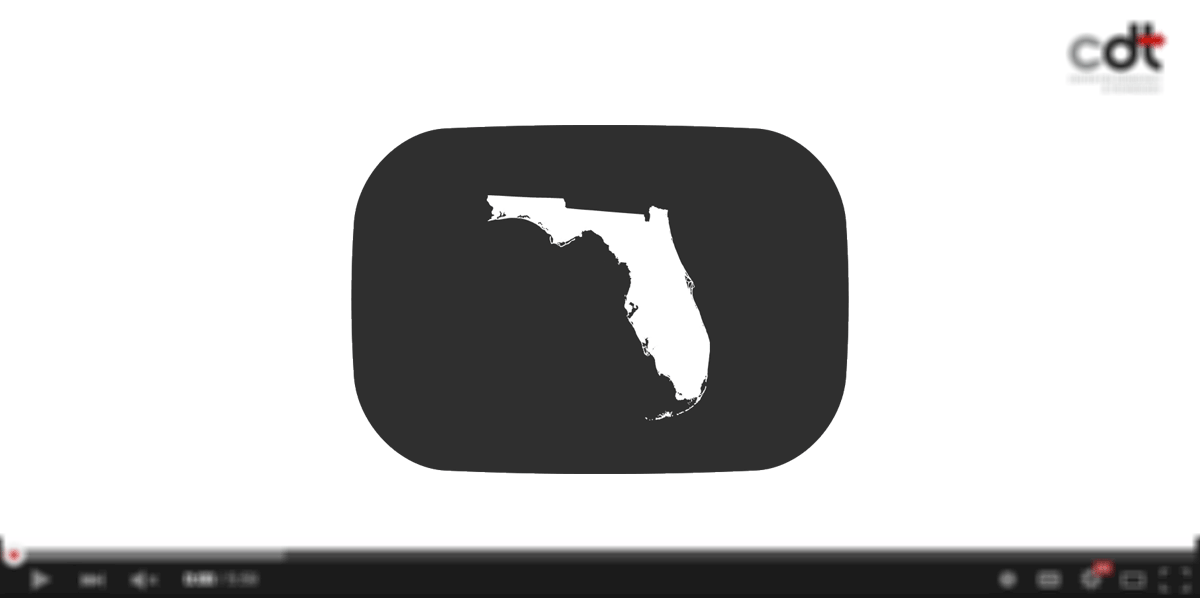Free Expression, Open Internet
Florida’s “True Origins of Digital Goods Act” Threatens Online Anonymity

A misguided copyright enforcement bill in Florida is threatening online anonymity. This week, the state legislature is considering the “True Origins of Digital Goods Act,” which would essentially make it unlawful for a website operator to remain anonymous if her site includes a substantial amount of embedded music or video, any of which a rightsholder chooses to sell, rent, perform, exhibit, or possibly even give away now or in the future. Anyone who runs a music blog or features video clips on her website would be required by law to disclose her name, address, and telephone number on the site.
This law would seriously burden an individual’s right to anonymous speech and is immediately suspect for singling out particular speakers.
This law would seriously burden an individual’s right to anonymous speech and is immediately suspect for singling out particular speakers: it would prohibit anonymity only for certain types of websites that host only certain types of work. It also ignores the Internet’s fundamentally interstate nature and attempts to regulate any website that disseminates music and video to people in Florida, echoing other violations of the dormant Commerce Clause that have brought down state Internet regulations in the past.
The goal of this bill is to make it easier for rightsholders to identify and sue website operators who host allegedly infringing audio and video files. But Congress already passed a law laying out the framework for how to deal with allegations of infringement online: under the Digital Millennium Copyright Act, website operators receive a safe harbor from liability for infringement by their users if they comply with the DMCA’s notice-and-takedown procedures. The DMCA, along with the current system of copyright limitations and exceptions in the Copyright Act, has allowed the Internet to thrive as a platform for creativity and economic growth.
Anonymity is a shield from the tyranny of the majority.
While the True Origin of Digital Goods Act, as a state law, could not override the federal framework, it is poised to undermine it. Website operators who prefer not to disclose their identity (but who could still use a proxy service for handling DMCA notices) will face a new potential threat of lawsuits: the Florida law allows a rightsholder to bring a suit to compel website operators to disclose their identity—and pay attorneys fees. This threat of litigation—and its chilling effect on people’s willingness to run websites that host user-uploaded content—is exactly why Congress passed laws limiting Internet intermediaries’ liability in the first place.
This law demands identification of anyone who operates a site that includes a substantial amount of media—ignoring the essential role fair use plays in our copyright system, and paying no heed to the important role of the right to anonymous speech in a democratic society. As the Supreme Court recognized in McIntyre v. Ohio Elections Commission, “Anonymity is a shield from the tyranny of the majority.” Anonymity is also a shield protecting the legitimate privacy interests of speakers on the Internet. The owner of a website should not have to relinquish that shield simply because the site they run includes user-uploaded media files.
If rightsholders wish to improve the DMCA system, they should work with all actors in the Internet ecosystem to do so rather than manufacturing a parallel enforcement regime that threatens online creativity, privacy, and free expression.


